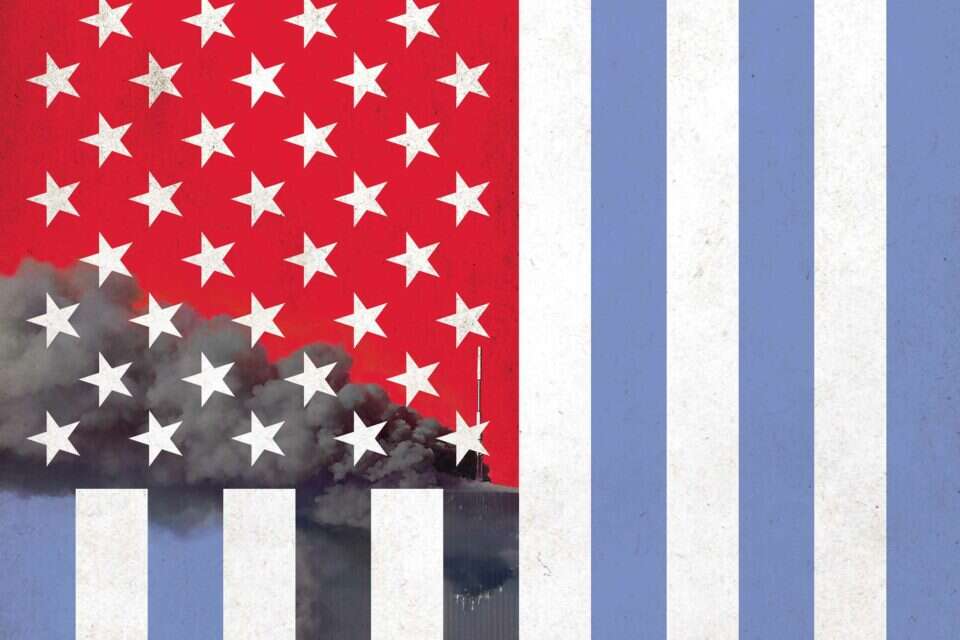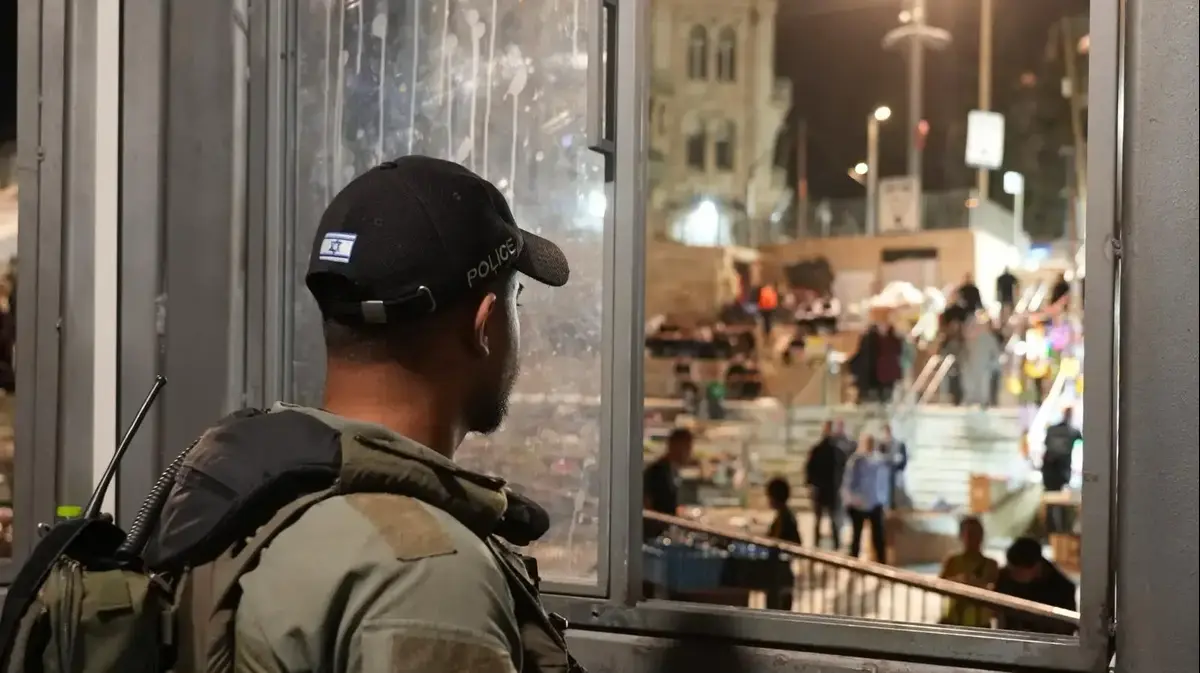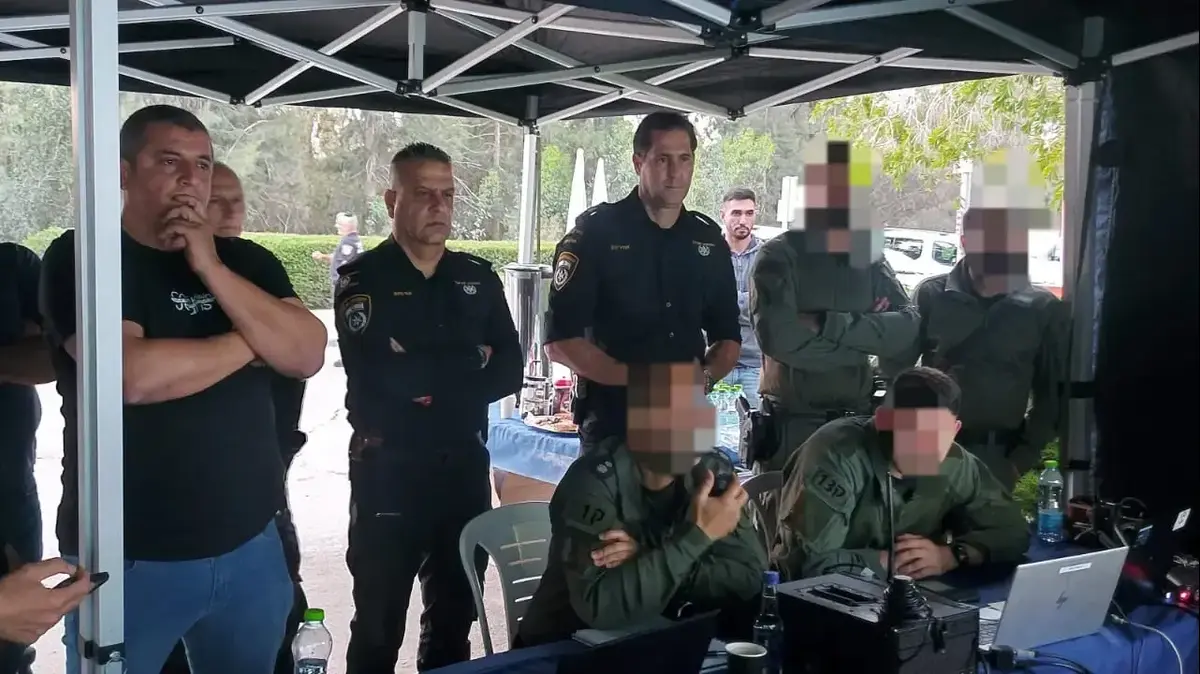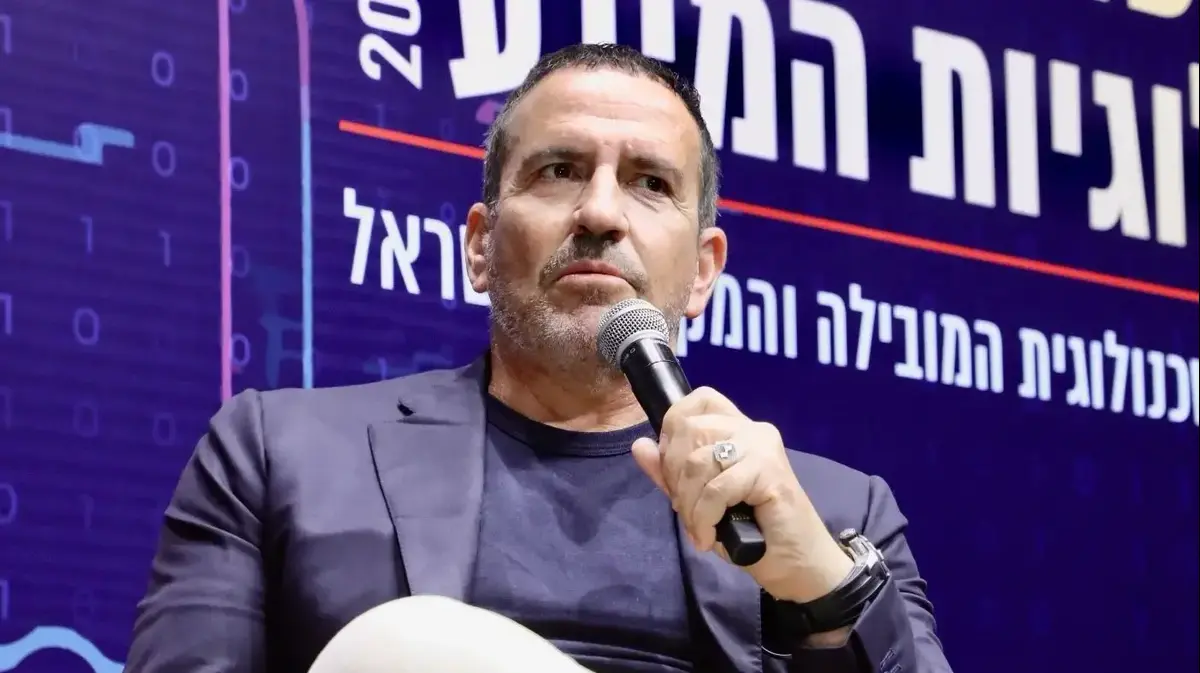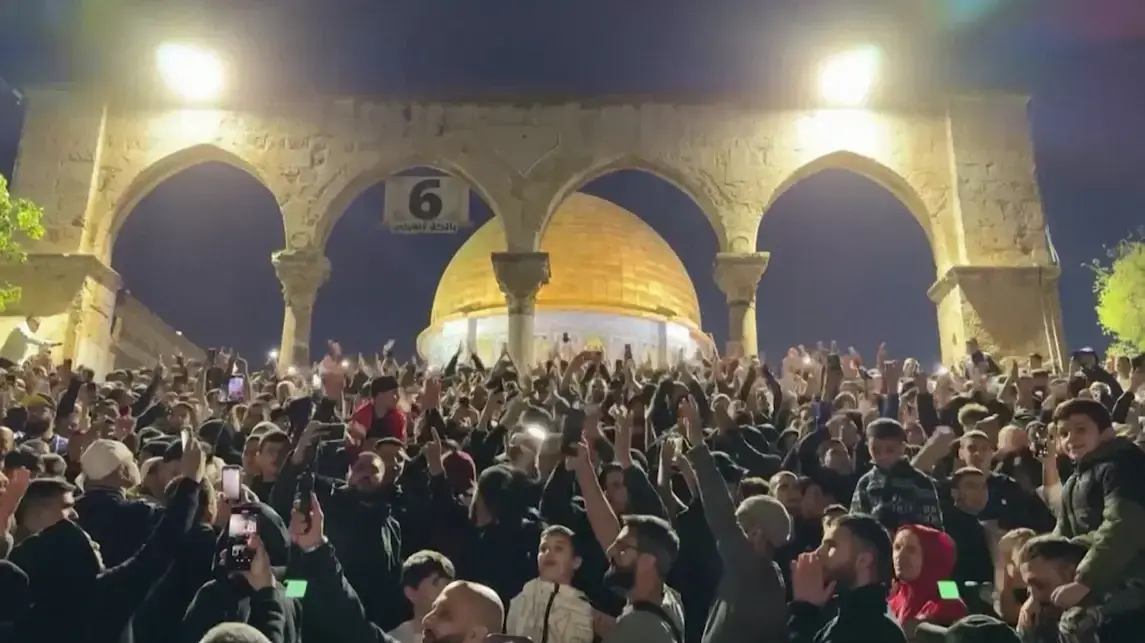From the photographed death of Muhammad a-Dura to the burning towers in Manhattan - September has become a symbolic month in the eyes of radical Islam
In the last generation Rosh Hashanah is the preferred date for terrorism.
On the eve of Rosh Hashanah, 20 years since al-Qaeda's terrorist attack on the United States, the six terrorists escaped from Gilboa Prison in the Jezreel Valley. That attack, using air gliders across the Lebanese border on the Nahal camp near Kiryat Shmona, was one of the biggest accelerators for the outbreak of the first intifada in December 1987, two weeks later.
For Islamic terrorism, and for Arabs in general, dates are important in their symbolism. The second intifada, which launched the longest and deadliest terrorist attack in the country's history, began on Rosh Hashanah 5769. The twins were hit by a wing of the Pentagon in Washington, D.C., and another flight crashed in Pennsylvania and apparently aimed at the White House - occurred a week earlier.It was about a year before the Palestinian intifada broke out (a week before Rosh Hashanah).
Another point in time: In a meeting between President Joe Biden and Prime Minister Naftali Bennett, a head sculpture of Bobby Kennedy behind the president could be seen. The leading candidate for the presidency of the United States, June 5, 1968 - the anniversary of the Six Day War.
Rarely does anyone in the American media point to the simple fact that this is a Palestinian terrorist who avenged the anniversary of its "property" (the loss of Arab states in 1967).
Out of addiction to the national catastrophe in the second Kennedy assassination, after John, the assassination is seen as one of the assemblages of assassinations and conspiracies that flooded American society in those years.
Hitler's fantasy
The great anxiety brought about by the September 11 disaster is the ease with which the US government may evaporate
failures that are seen as a great victory of terrorism are inspiring. On the roads and the suicide bombers on buses, in cafes and supermarkets.The terrorist attack was also accompanied by political success, when the administration of President Bush Jr. first publicly accepted the principle of establishing a Palestinian state as part of a "two states for two peoples."
For the Americans, the 20th anniversary of the 9/11 attacks was accompanied by a failure that bears some resemblance in its effect to the terrorist attacks that led to the Afghanistan war and the Iraq war. Until the second plane collided with the second tower in lower Manhattan, it was still possible to think that it was a "hot tower" -style disaster. "Look, there's a fire in one of the Twin Towers," a friend said on the phone as we clung to the TV screen. It was perceived for long minutes as a Hollywood disaster movie. Then came a crash on the Pentagon, and another in Pennsylvania. The US administration seems paralyzed. It was the first time since the imperialist wars of the early 19th century that the United States had been attacked by a foreign force on its soil. Hitler fantasized about such an explosive glider attack on New York.
In the end, beyond the shock of the huge death toll and the destruction of one of the American symbols, there was suddenly anxiety about the ease with which the US government is evaporating. What are they supposed to do? How do they defend themselves? Rising from the ruins of the towers that raised thin smoke, as President Bush stood by one of the firefighters with a megaphone in his hand and improvised a speech, it was clear that America needed to hit something somewhere.
Crash on the burqa rock
After years of "war on terror", it is clear that there is a gap between the development of democracy in an occupied country and
a similar shock
freedom
was now from the collapse of the entire US withdrawal operation and the Taliban's quick campaign to occupy Afghanistan and its capital Kabul. What's happening to America? September 11 had a similar effect to Pearl Harbor. A shock that electrified and solidified the nation with a determination to fight Islamist terrorism.
The collapse in Afghanistan is unlikely to lead to a new determination in America's foreign policy, because the withdrawal itself is the result of reverse determination. To cut off contact, to retreat, to acknowledge American failure, the same military missionaryism designed after the bombings of shock and astonishment to bring to its wings democracy, abundance, and freedom. Also gender studies at the American University in Kabul.
It should be noted first of all that for 20 years, the United States and its NATO allies have eliminated Afghanistan as the basis of al-Qaeda's global terrorist organizations. For many years, terrorist activity against the United States ceased. Bin Laden was assassinated in 2011. Intellectuals in America are now trying to figure out where they went wrong and what lessons to learn.
The problem is, the feelings of disintegration and inaction prevail over everything. So much so, that in the journal Foreign Affairs they went back to the book of the Soviet freedom fighter Andrei Amelrik, to try to understand what are the processes leading to the collapse of a power, not to mention an empire. This is a book written by Amelrik in the early 1970s, which predicted the disintegration of the Soviet Union somewhere in the future, in about 1985. But the re-reading in it is done this time out of the knowledge of the processes; That said, what happened to the USSR, not necessarily because of its defeat in Afghanistan, could happen to the US as well. In parentheses it is said that what happens in the US can also happen in Israel. You can dive in a dark well without knowing you are diving and without knowing when you will meet the bottom to which you will crash.
One of the lessons from the 20 years of the "war on terror" is that there is a difference between developing a democracy in an occupied country and freedom.
This is what Peter Berkowitz, who headed the Trump administration's political planning division, claims.
There is not necessarily an overlap between the degree of freedom and the democracy in which the government is elected in general elections.
Everyone seems to agree that attempts to instill in Western or Iraqi society the values of Western-style freedom, with gender studies instead of public health studies, have crashed into the burqa rock.
Still, a new urban status has emerged in Afghanistan with a smartphone.
These suddenly found themselves as persecuted refugees.
One of the refugees who fled on the air train organized by the Americans from Kabul, told the BBC: "If the world thinks it is not their business - trust me, sooner or later it will reach their borders again."
Feelings of remorse and failure have accompanied Americans for years.
In a democracy these are natural emotions that eventually connect to a particular ideology.
An ideology that believes, in the American case, that American intervention in the world since World War II has done more harm than good.
This is the belief that the United States should concentrate on what is happening within its borders, and everything that happens across the ocean is not interesting.
This is a strange approach that has no basis in the simple historical facts known to all.
There is no occurrence of evil in the world whose exile will not reach the borders of America.
Every occurrence of evil also reaches Israel in the end.
On the subject of the spread of the world of terrorism, the theory speaks of a solution of the existence of independent sovereign states.
The borderless global world is paradise, if not the ideal swamp for the spread of terrorism.
Nothing ended in Afghanistan.
In addition, the past 20 years have given impetus to a phenomenon that may have existed long before, but after the 9/11 attacks and the “war on terror,” has gained threatening power: the propaganda war that accompanies terrorism and anti-terrorism activities have penetrated deep into democratic societies.
Especially to the United States. Iran has created, by various means, centers of influence in American society. This is not only related to those who support Iran's strategy on the nuclear issue, but in general in all the issues Iran faces. They organize seminars, they have representatives in universities. "There are spokesmen for the media who have even been identified as Iranian agents and are being broadcast.
The intrusion of anti-Israel political warfare into American institutions is astounding.
A student identified as a Jew has difficulty breathing on the American campus because of the network of pro-Palestinian and anti-Israel movements.
All of this is based on the anti-war wave that has accompanied the United States since the 2008 election, and even more so since Trump's victory in 2016.
Tweezers 10 meters long
Moshe Dayan said as early as 1973 that he knew of no way to fight terrorism without violating international law. He was right
In general, Islamic terrorism has proven to be the most effective and successful way to fight against the West and against the states of freedom and democracy.
It turns out that a country like Syria, which tried to fight Israel in a conventional war, disintegrated and became a non-state about 40 years after the Yom Kippur War.
There is a positive lesson in this for a democratic state like Israel.
The inner empowerment and inner resilience are in themselves likely to lead to the collapse of an enemy state without many shots.
It has also happened between the United States and the Soviet Union. On the other hand, guerrilla and terrorist organizations are capable of exhausting and disintegrating democratic society - as we see in the United States and Israel.
Asymmetric warfare for its various methods has permeated demoralization in the IDF and the U.S. military.
The second phenomenon that is very disturbing and is of course related to the first phenomenon of propaganda intrusion, is that every country with a pretension to influence beyond its borders has a terrorist organization, or some of them, which it cultivates.
Russia "our friend" works together with Hezbollah in Syria, and some of Hezbollah's deadly weapons, which threaten the IDF in the event of a flare-up in Lebanon, originate in Russia. So does Hamas.
In its previous incarnation as the USSR, Russia used the PLO for its branches.
Pakistan ruled the Taliban, which also had the support of Saudi Arabia;
The Saudis, as is well known, maintained cross-financial ties with al-Qaeda.
The cost of a "small" regional war could be dire, especially with the proliferation of nuclear weapons.
It is better to develop a terrorist organization.
The Americans did the same with the Mujahideen and with the Contrast in Nicaragua.
And what did Israel do?
Maybe not enough.
Iran is occupying the Middle East through terrorist messengers.
Moshe Dayan said as early as 1973 that he did not know of a way to fight terrorism without violating international law.
he was right.
Terrorist organizations have learned to use the international law system and the legal systems of democracies to stop the campaign against them.
Terrorism is a form of war, and this fact has been known for many years, even before World War II.
The justice systems did not adapt to the new war.
The challenge was revealed in 2000 with the outbreak of the second intifada.
At first, the targeted assassinations seemed to be a technique that brought Israel and the United States to the forefront of terrorism. And thanks to human rights organizations and narrow-minded lawyers, a country like Israel finds itself in a never-ending war of attrition.

